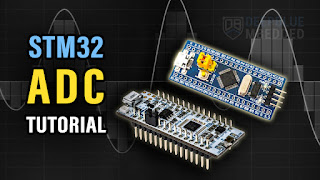Which microcontroller is used in Arduino Uno?
The microcontroller used in the Arduino Uno is the ATmega328P, made by Microchip (formerly Atmel).
Here's a more detailed breakdown:
Core Microcontroller: ATmega328P
Architecture: 8-bit AVR RISC
Clock Speed: 16 MHz (crystal oscillator on the Uno board)
Flash Memory: 32 KB (0.5 KB used for bootloader)
SRAM: 2 KB
EEPROM: 1 KB
Digital I/O Pins: 14 (6 can be used as PWM outputs)
Analog Input Pins: 6
Operating Voltage: 5V
Important Supporting Chips on the Uno Board
While the ATmega328P is the "brain," the Uno has other important chips:
USB-to-Serial Converter: ATmega16U2 (or ATmega8U2 in older revisions)
Handles USB communication with your computer
Converts USB signals to serial that the main microcontroller can understand
Voltage Regulator: NCP1117ST50T3G
Regulates incoming voltage to stable 5V and 3.3V
Different Uno Versions
It's worth noting that there have been some variations:
Uno R3 (most common): Uses ATmega328P + ATmega16U2
Uno R4 (newest): Uses a 32-bit RA4M1 ARM Cortex-M4 processor from Renesas (a significant upgrade!)
Older Unos: Used ATmega328 (without the "P") or ATmega8U2
How to Identify Your Chip
Look at the chip - The largest black chip in the center of the board will have "ATmega328P" printed on it
Check in Arduino IDE - Go to Tools > Board > Arduino Uno AVR Boards > Arduino Uno
Physical inspection - The package is a 28-pin DIP (Dual In-line Package) in most Uno boards
Why This Matters for Programming
When you compile code in Arduino IDE, it's specifically optimized for the ATmega328P's architecture
The 32KB flash memory limit affects how large your sketches can be
The 2KB SRAM is why you need to be careful with memory management in larger programs
The ATmega328P has become the workhorse of the Arduino ecosystem due to its balance of capability, cost, and widespread availability. Many Arduino-compatible boards also use this same microcontroller.




评论
发表评论